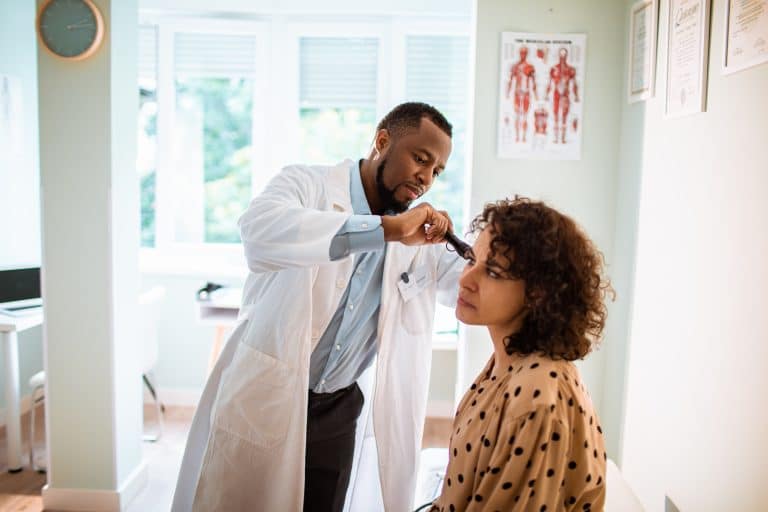The term “normal hearing” is commonly used by audiologists in order to explain what people with hearing loss can and cannot hear. Below we review the different degrees of hearing loss and go over what exactly is considered normal.
How Are Sounds Measured?
Sounds can be measured in both Hertz (Hz) and decibels (dB).
Hertz measures a sound’s frequency or pitch, or how many times per second a soundwave repeats itself. A bass guitar and a cow produce lower pitched sounds while a flute and a cricket produce high-pitched sounds. People with normal hearing can hear sounds between 20 and 20,000 Hz.
Decibels measure how loud a sound is. The following list of the average decibel ratings of familiar sounds was put together by the National Institute on Deafness and Other Communication Disorders (NIDCD):
- Breathing: 10 dB.
- Normal conversation: 60-70 dB.
- Movie theater: 74-104 dB.
- Motorcycles: 80-110 dB.
- Sporting event at Levi’s Stadium: 94-110 dB.
- Sirens: 110-129 dB.
- Fireworks: 140-160 dB.
Any sound that is 85 dB or louder can cause permanent damage to the delicate hair cells within the inner ear over time.
Degrees of Hearing Loss
Hearing loss is categorized according to five different degrees, depending on the volume of sounds you can hear. These degrees include:
- Slight – cannot hear sounds below 15 to 20 dB.
- Mild – cannot hear sounds below 26 to 40 dB.
- Moderate – cannot hear sounds below 40 to 69 dB.
- Severe – cannot hear sounds below 70 to 94 dB.
- Profound – cannot hear sounds lower than 95 dB.
Hearing Loss Testing
It is crucial to determine your exact level of hearing loss, as your audiologist uses this information to create a unique treatment plan for your needs. In order to do so, they will conduct a series of hearing tests, which may include:
- Pure tone testing.
- Bone conduction testing.
- Speech testing.
- Acoustic reflex testing.
- Auditory brainstem response.
- Otoacoustic emissions.
To schedule an appointment with a hearing expert to determine your exact degree of hearing loss, contact SH Audiology today.
